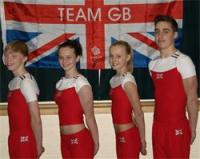Main Menu
Latest Blog Entry
User login
Coaching disabled athletes: Global Coaches House
Paralympics Wrap Up
After watching the blind football team play at the Paralympics, I went to the final session of the Paralympics Global Coaches House, chaired by Professor Pat Duffy.
This was a 2 part seminar with part 1 looking at experiences and thoughts of working with disabled athletes, and part 2 looking at future considerations for coach development.
A discussion was held with the coaches present offering insights from their practical experiences. It was agreed that there is no “blue print for coaching disabled athletes”.
I made the point that within the same sport and the same disability, individuals vary greatly. Just labelling people as “disabled” is much the same as labelling “women” or “Chinese“. Disabled athletes are not a homogenous group.
Another coach made the valid point that because of access to funding some disabled “participation athletes” are actually thrust into “performance” environments, even though they may not be ready, or may not ever be ready for that.
Pat Duffy then said that as ongoing coach education:
- All coaches should have the mindset, philosophy and capability to coach athletes with a disability
- The education of all coaches should address mindset, philosophy and capability so that coaches can respond accordingly to the needs of all athletes.
International Council for Coach Education
The second part of the seminar then looked at Coach Education for the different types of coach and the diffferent levels of athlete they work with.
This was quite comprehensive and showed that recogniton of ALL coaches is important, not just professional coaches working with Olympians.
In the U.K.:
- Less than 5% of coaches are full time and paid.
- 25% are part time and paid.
- 75% are unpaid volunteers
(Some interesting stats for those of you studying and thinking of Coaching as a profession.)
Coach development can include 3 areas:
- Professional Knowledge (The technical stuff)
- Interpersonal Knowledge (How to share and interact)
- Intrapersonal Knowledge (How you are as a person).
This formed part of a thorough framework that has been designed to assist all coaches at all levels.
(You can download a copy of the International Sport Coaching Framework here )
Summary
I found the evening useful as it got together, coaches and academics in the same room. Pat made the point that beauracrats and administrators make decisions that impact sport as a whole, but coaches don’t get involved in committees.
- Administrators need to seek out and understand what is happening in the real world.
- Coaches need to share and communicate upwards as well as downwards to help the overall body of knowledge develop.
Personally, I think that when academics publish papers or get asked to present at conferences, they need to name the coaches who have contributed.
It was good to see the overall picture, and then combine that with speciifc detail and examples.
Have a look at the frameworks and see how that fits into your coaching.
I am constantly frustrated with people just wanting to get a certificate, rather than looking to improve the quality of their coaching!
Client Testimonials
 Weston AGC
Weston AGC
I first met James at a South West Gymnastic conference and thought he was superb then, and still do! James' ability to adapt to different sports and levels is excellent, and he is superb at getting his message across to different ages of gymnasts. He did a workshop at our club for our competitive gymnasts and it was superb, His work was of great value to a wide range of ages and levels, with a tremendous emphasis on posture and injury prevention. We have been able to put his training methods into practice and are seeing an improvement in the all round strength and fitness of our gymnasts.
More

